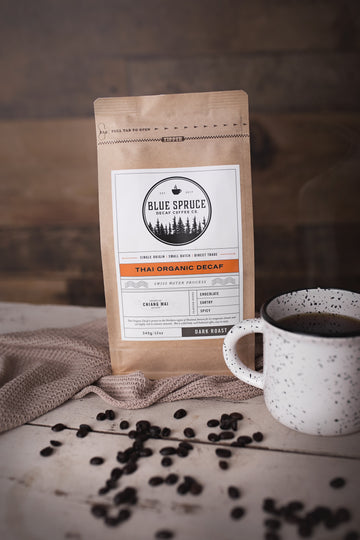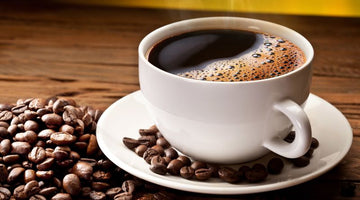Coffee without caffeine gets a questionable rap for some coffee enthusiasts. Many people shy away from decaffeinated options due to misconceptions about its taste. Some believe decaf coffee lacks the bold and robust flavor associated with its caffeinated counterpart. It leads to a widespread misconception that it simply does not measure up in taste.
The challenge also lies in finding good decaf coffee that mirrors the rich aroma and satisfying taste of regular brews. Despite advancements in decaffeination techniques the stigma hindered the appreciation for the nuanced and delightful flavors that high quality decaf coffee beans can offer.

Let’s uncover the truth behind these misconceptions and explore the realm of decaf coffee that's anything but bland.
Is there caffeine in decaf coffee?
There is a misconception that decaf coffee is it's entirely caffeine free. The decaffeination process significantly reduces caffeine content but it doesn't eradicate it entirely. There is around 5 milligrams of caffeine in an average 8-ounce cup of decaf coffee. A regular cup of coffee contains 80 to 100 milligrams. Decaf is not totally free from caffeine but it is a far cry from your usual cup of joe.
Does caffeine free coffee lack flavor?
Some believe that decaf coffee lacks the rich flavor and aroma that regular coffee offers. Advancements in decaffeination methods have preserved the taste and aroma remarkably well. Modern techniques like the Swiss Water Process maintain the integrity of the coffee beans. It ensures that you still get that delightful essence in every sip. Go for high-quality decaf beans. You won't miss out on the flavors that make your coffee experience so enjoyable.
Is decaf coffee made caffeine free from harmful chemicals?
Some folks worry that decaf coffee might be harmful due to the chemicals used in the decaffeination process. The real decaf is actually chemical free coffee. Some decaf coffee is processed using chemical solvents like ethyl acetate or carbon dioxide. They might sound health hazards. So always look for safe and FDA-approved brands.

You can also go for organic decaf options. These are processed without any chemicals. Therefore they are an excellent choice for those seeking a more natural brew.
Is decaf coffee only for people sensitive to caffeine?
Decaf coffee is not only for people who are sensitive to caffeine. In fact it is a great choice when you want to enjoy a warm cup in the evening without worrying about sleep disturbances. Studies show that decaf coffee offers the same antioxidants found in regular coffee. Hence decaf is a healthy option for everyone. Organic decaf is even better option for pregnant individuals and people with certain medical conditions. Even if you don’t have caffeine sensitivity you can enjoy the flavorful and low caffeine alternative.
Is decaf coffee less popular than regular coffee?
If you doubt the popularity of decaf then you need to think again. Decaf coffee has been steadily gaining popularity in recent years. The decaf coffee market has seen a significant rise in demand. More people are embracing the decaffeinated lifestyle.
Specialty cafes and coffee shops now offer a variety of decaf options. They are catering to the growing demand for flavorful and low caffeine brews.
Bottom line
Decaf coffee isn't just a watered-down version of the real deal; it's a flavorful, aromatic beverage that suits various preferences and lifestyles. With minimal caffeine content, preserved taste, and a range of options to choose from, decaf coffee has successfully debunked the myths surrounding it. So, the next time you're sipping on a delicious cup of decaf enjoy water processed decaf coffee by Blue Spruce Decaf Coffee Co. It is a top rated brand for providing the assurance of brew that's as vibrant and satisfying as its caffeinated counterpart.












